#non-fiction books
Photo
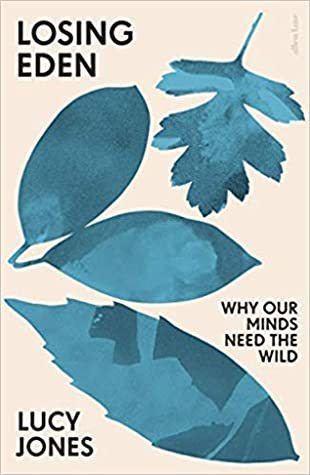

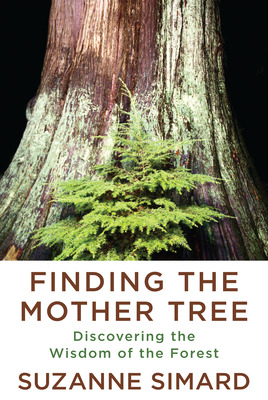

One with Nature: Connecting with the Natural World
Losing Eden: Why Our Minds Need the Wild by Lucy Jones
Today many of us live indoor lives, disconnected from the natural world as never before. And yet nature remains deeply ingrained in our language, culture and consciousness. For centuries, we have acted on an intuitive sense that we need communion with the wild to feel well. Now, in the moment of our great migration away from the rest of nature, more and more scientific evidence is emerging to confirm its place at the heart of our psychological wellbeing. So what happens, asks acclaimed journalist Lucy Jones, as we lose our bond with the natural world--might we also be losing part of ourselves?
Delicately observed and rigorously researched, Losing Eden is an enthralling journey through this new research, exploring how and why connecting with the living world can so drastically affect our health. Travelling from forest schools in East London, to the Svalbard Global Seed Vault, via Poland's primeval woodlands, Californian laboratories and ecotherapists' couches, Jones takes us to the cutting edge of human biology, neuroscience and psychology, and discovers new ways of understanding our increasingly dysfunctional relationship with the earth. Urgent and uplifting, Losing Eden is a rallying cry for a wilder way of life - for finding asylum in the soil and joy in the trees - which might just help us to save the living planet, as well as ourselves, from a future of ecological grief.
Braiding Sweetgrass: Indigenous Wisdom, Scientific Knowledge, and the Teachings of Plants by Robin Wall Kimmerer
As a botanist, Robin Wall Kimmerer has been trained to ask questions of nature with the tools of science. As a member of the Citizen Potawatomi Nation, she embraces the notion that plants and animals are our oldest teachers. In Braiding Sweetgrass, Kimmerer brings these lenses of knowledge together to show that the awakening of a wider ecological consciousness requires the acknowledgment and celebration of our reciprocal relationship with the rest of the living world. For only when we can hear the languages of other beings are we capable of understanding the generosity of the earth, and learning to give our own gifts in return.
Finding the Mother Tree: Discovering the Wisdom of the Forest by Suzanne Simard
From the world's leading forest ecologist who forever changed how people view trees and their connections to one another and to other living things in the forest--a moving, deeply personal journey of discovery.
Suzanne Simard is a pioneer on the frontier of plant communication and intelligence; she's been compared to Rachel Carson, hailed as a scientist who conveys complex, technical ideas in a way that is dazzling and profound. Her work has influenced filmmakers (the Tree of Souls of James Cameron's Avatar) and her TED talks have been viewed by more than 10 million people worldwide.
Now, in her first book, Simard brings us into her world, the intimate world of the trees, in which she brilliantly illuminates the fascinating and vital truths--that trees are not simply the source of timber or pulp, but are a complex, interdependent circle of life; that forests are social, cooperative creatures connected through underground networks by which trees communicate their vitality and vulnerabilities with communal lives not that different from our own.
The Vanishing Face of Gaia: A Final Warning by James E. Lovelock
Celebrities drive hybrids, Al Gore won the Nobel Peace Prize, and supermarkets carry no end of so-called “green” products. And yet the environmental crisis is only getting worse. In The Vanishing Face of Gaia, the eminent scientist James Lovelock argues that the earth is lurching ever closer to a permanent “hot state” – and much more quickly than most specialists think. There is nothing humans can do to reverse the process; the planet is simply too overpopulated to halt its own destruction by greenhouse gases.In order to survive, mankind must start preparing now for life on a radically changed planet. The meliorist approach outlined in the Kyoto Treaty must be abandoned in favor of nuclear energy and aggressive agricultural development on the small areas of earth that will remain arable.
A reluctant jeremiad from one of the environmental movement’s elder statesmen, The Vanishing Face of Gaia offers an essential wake-up call for the human race.
#nonfiction#non-fiction#non-fiction books#history#Environment#biology#botany#nature#natural science#sustainability#science#ecology#to read#tbr#booklr#book blog#reading recommendations#Book Recommendations#book recs#library books#informed reading#reading for a better world
215 notes
·
View notes
Note
If you can only read 1 non-fiction and 1 fiction book for the rest of your life, what would it be? Why do you pick these books?
Do you have book or author recs to read?
Thank you :)
@curiousnonny
Well as a history fanatic, I’d want to choose All Quiet On The Western Front, just because it really does encapsulate how war should be looked at & I think it offers a very valuable perspective, especially one we rarely ever see in Western media. However, I’d want to choose that as my non-fiction, but it is a fictional story based on real events. Which feels like cheating but I honestly don’t read a lot of non-fiction, so that’s what I’m going to go with.
As for the fiction choice, surprise-surprise, probably The Hunger Games books. I feel like the impact/meaning would be lost if you wouldn’t be able to read the entire series, so I might say Mockingjay in particular, although it doesn’t stand up as well as The Hunger Games does as a stand-alone book. Mainly just because I do really enjoy the Hunger Games series. It’s such a cleverly crafted piece & holds so much societal critique with a unique love story that makes my writer’s brain go 😍AWOOGA🤤. It’s one of those masterpieces you can continue to pick apart forever & still find enjoyment & wow factor from. (At least for me it does)
As for any recommendations, I am a crime junkie at heart, so you best believe that’s what I’ll give you. There’s this series I started (& haven’t gotten to finish) by Lisa Jackson, called the Montana “To Die” series. I haven’t even finished the first book (Left To Die) but it’s absolutely THRILLING & a major page turner, so I highly recommend.
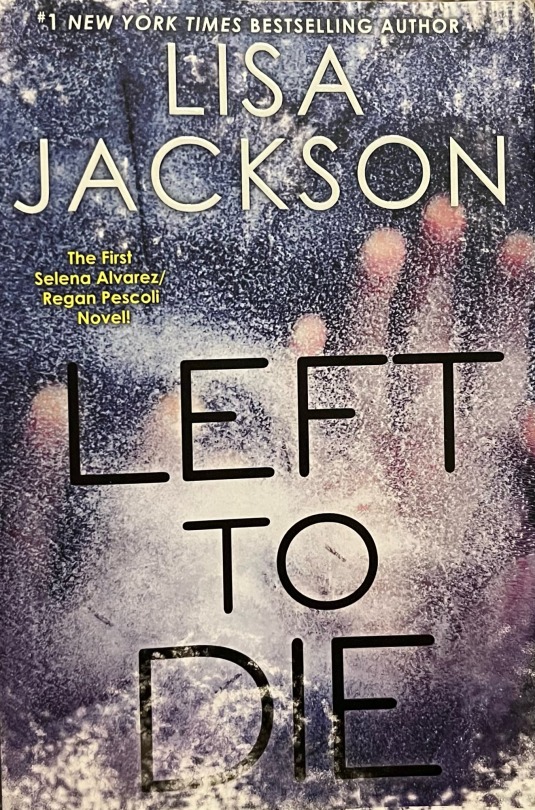
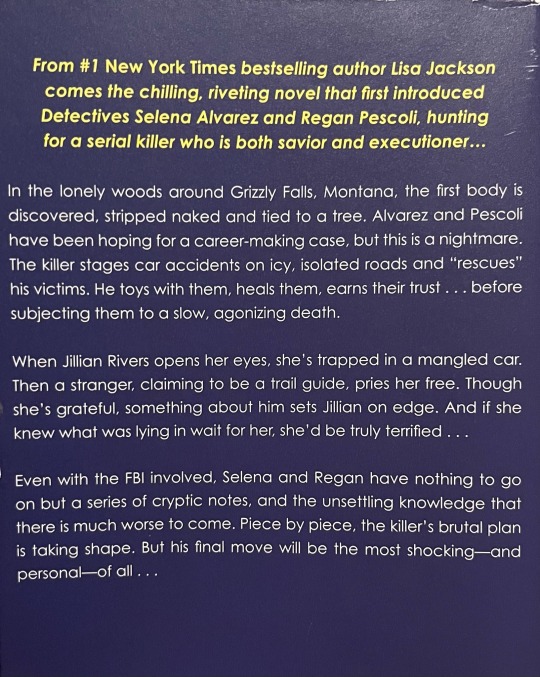
#fiction books#non-fiction books#book recommendations#all quiet on the western front#the hunger games#mockingjay#left to die#Lisa Jackson
3 notes
·
View notes
Text
Persepolis- my review
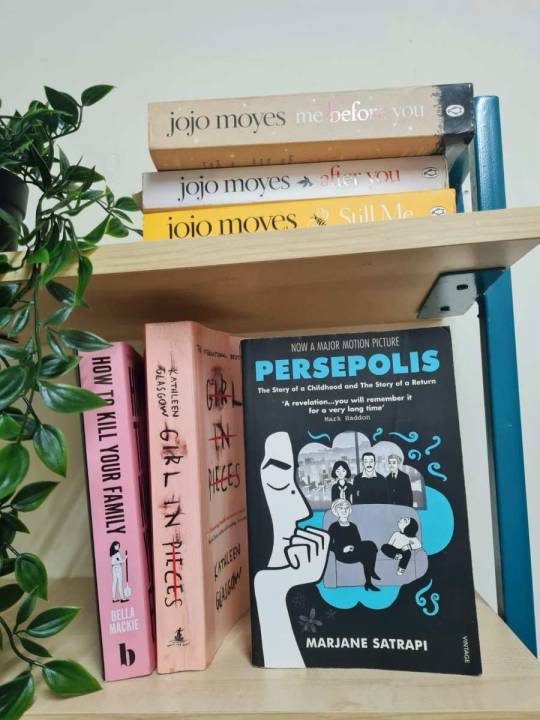
Hi! I read the first chapter of this read as a part of my literature course and ended up finishing the entire memoir the same week! I highly recommend you to read it.
Persepolis by Marjane Satrapi is an autobiographical work in the form of comic strips. Candid, often heartbreaking but threaded throughout with raw humor and hard-earned wisdom, it follows the life of a 10 year old all the way up to when she is 24. It follows her as she lives in a war-torn Iran filled with protests and oppression, as she is forced to leave her home as a 14 year old to leave in Austria, her eventual return back home, and her final departure from her homeland. It is very much worth reading.
Book blurb
Persepolis is the story of Marjane Satrapi’s unforgettable childhood and coming of age within a large and loving family in Tehran during the Islamic Revolution; of the contradictions between private and public life in a country plagued by political upheaval; of her high school years in Vienna facing the trials of adolescence far from her family; of her homecoming—both sweet and terrible; and, finally, of her self-imposed exile from her beloved homeland. It is the chronicle of a girlhood and adolescence at once outrageous and familiar, a young life entwined with the history of her country yet filled with the universal trials and joys of growing up.
Book review-
I loved this book. It starts with all the childlike innocence of a 10-year-old and follows Satrapi as the innocence is slowly chipped away. You follow the protagonist as she has to leave her parents, as she falls in love, and as she experiences the effects of war and the experiences of being isolated from her family. The comic strips with text boxes depicting this make reading a graphic experience and the best experience possible.
This read is somehow homorous, but poignant and painful at the same time. It was often heartbreaking to read and ends up giving you a lot of information about the daily life and situation in Iran at that time. All-in-all, I recommend this read to you even if you don’t normally read non-fiction, you will still like it (and this is coming from a reader who reads strictly fiction).
purchase this book here: https://amzn.to/47SV1IA [this is an associate link]
drug of choice? having someone read the book i recommended to them
#book blog#book recommendations#book review#book reviews#must read#non-fiction books#reading#bookblr#booklr#booklover#marjane satrapi#persepolis
3 notes
·
View notes
Text
Inspiration, Readers, and the Justification of Fiction
As a fiction author and a writer of non-fiction works, I am often asked, “Where does writing inspiration come from?” People sometimes worry about my writing and request directly to “not write about me.” I explain myself to such inquiries with the plea that those who worry about “snitching” come to grips with the nature of fiction. Life is the inspiration for fiction, but life represented in fiction is not an image portrait of people and places I know. Characters I create are composites and might come from a trait or two of someone I have become acquainted with, but they are never direct representations. I loath biographies and autobiographies and would poorly attempt to write those if called on. My non-fiction works are model theorem-based writings, and I do not use case studies, so, once again, almost everyone I know can feel safe that they are not used as examples (even with name changes).
I am always grateful to my readers. Writers need readers. Never knowing the exact impact of my books on my readers is the miasma of the writing profession. General decisions such as “I liked it,” or “Not quite my kind of material,” are commonly tossed around in feedback comments. While lingering hard for a literary or scholarly review is not my writing style. I like to hear that someone took the time to read my work regardless of their last opinion. “Thank you for reading,” is a response I feel is due to any reader of my writing as writing is useless as a task unto its purpose of words on a page. Readers fulfill a writer’s purpose. When a writer becomes complacent, readers know a writer begins a downward spiral into an uncaring, semi-belligerent relationship with the writer’s audience. Whether readers react to a writer’s books with praise or censure, writers must produce their best work in every published endeavor. It sometimes takes tough skin to continue to write. Coming up through years of rejection slips and resistant editors, I became a better writer with a realistic point of view. Not everyone will love a writer’s product, and not everyone will refuse a writer’s efforts. When I write, I hope to touch my readers in some way that gives back a reasonable exchange from the written words to the readers’ emotions, thoughts, or knowledge base.
I am unusual. I write both fiction and non-fiction works. I am half-lost when I do not work on fiction and non-fiction writing projects. Writing in more than one category balances the brain. This belief does not come from inexperience. I have tried to write simply fiction and wondered why I was wandering around during my day with “brain mush.” I have concentrated on non-fiction only to meet deadline requirements and experienced the creative spark eating at me to pen a fiction short story or two, disturbing my thoughts. When I focus on fiction projects added to my day, I know I am working on reaching readers further than a non-fiction book can involve. Coming to the page is an act of reason, creativity, and purpose. Fiction feeds my need to give something back about life while allowing me to adjust characters and settings for imaginative wandering. I do not write aimlessly. Transporting the reader to another place and time with fictive events and people chronicled lets the pages unwind for an armchair journey. Perhaps the book will satisfy a need for escapism or spark a new way to view the world. I am a reader and an author, and fiction is as worthy as non-fiction in contributing to societal value. I do not see the day has arrived to choose between fiction and non-fiction. Fiction and non-fiction are not valued alike, but they both require a serious decision on the writer’s part to pen a work meant for reader consumption. Fiction should not be second-class. My advice to other writers is to take writing seriously regardless of venue and to put forward the best work possible knowing writing for a readership is its own reward.
*Look for the next book of Fiction short stories "Slipping Sideways" coming soon.
Works (Fiction and Non-fiction)
by Dr. Kimberly A. McKenzie-Klemm, CEO TPGR Solutions, LLC
The Rest Room https://www.barnesandnoble.com/w/the-rest-room-kimberly-a-mckenzie/1121633488
The Dream of Keriye https://www.amazon.com/Dream-Keriye-Kimberly-Mckenzie/dp/132912541X
Rise Times Souls Love https://www.barnesandnoble.com/w/rise-times-souls-love-kimberly-a-mckenzie-klemm/1126956790
Growing Past https://www.amazon.com/Growing-Past-Kimberly-McKenzie/dp/1495293467
TEAMWORK (Together Everyone Achieves More) https://www.barnesandnoble.com/w/teamwork-kimberly-a-mckenzie-klemm/1126409904
The Quality 4P’s Model Handbook https://www.lulu.com/shop/kimberly-mckenzie-klemm/the-quality-4ps-model-handbook/paperback/product-8g2w5n.html?page=1&pageSize=4
The Quality 4P’s Model Guidebook for Chapters 1 & 2 https://www.lulu.com/shop/dr-kimberly-mckenzie-klemm/the-quality-4ps-model-guidebook-for-chapters-1-2/paperback/product-kvnn29m.html?q=The+Quality+4P%27s+Model+Guidebook+for+Chapters+1+%26+2&page=1&pageSize=4
2 notes
·
View notes
Text
The Journey: Appalachia to Paradise to Purgatory by Colonel Vaughan Witten
Colonel Vaughan Witten is a man who has truly lived a remarkable life. Born in Anawalt, West Virginia, in 1935, he grew up in a small coal mining village as the son of a coal miner and Baptist minister. At the age of just 15, he graduated from Washington High School and went on to enlist in the U.S. Air Force during the Korean War with his parents' permission.
Over the course of his life, Colonel Witten achieved many remarkable accomplishments. He earned two BA degrees, one from Shaw University and one from North Carolina State University, before going on to earn a Ph.D. in psychology from North Carolina State in 1989. He then spent 34 years as a psychology and sociology professor at Shaw University, Park College, and Webster University.
One of Colonel Witten's most notable accomplishments is the publication of his autobiography, "The Journey: Appalachia to Paradise to Purgatory." In this book, Colonel Witten tells his own story of growing up in a small community and rising to become a Chief Master Sergeant in the Air Force, as well as earning two BA degrees and a Ph.D. from a world-class university.
"The Journey: Appalachia to Paradise to Purgatory" is a powerful and inspiring book that presents the innocence, happiness, and final disappointment of a West Virginia coal miner's son who sees his country on the slippery slope to immorality and the highest levels of academia. Colonel Witten's story is a testament to the power of perseverance, determination, and a strong sense of community and faith.
If you're interested in learning more about Colonel Vaughan Witten and his inspiring life story, you can visit his website at https://colonelvaughanwitten2.com/. Don't miss out on the opportunity to learn from this remarkable figure from Appalachia.

#best non fiction books#travel writing#non fiction books to read#autobiography books#non-fiction books#best travel books
3 notes
·
View notes
Text

Carlo Bevilacqua, Randy Manuel
The alternative communities taken by Carlo Bevilacqua
Carlo Bevilacqua , a photographer known for his socio-anthropological investigation, presents a selection of shots taken from his projects over the last five years in various parts of the world . These projects then materialized in two wonderful photographic books: Utopia, dreaming the impossible and Into the silence, Hermits of the third millennium . Bevilacqua's work explores contemporary utopian communities around the world, focusing on alternative, spiritual, artistic, hippie and environmentalist communities . He seeks to define the meaning of “utopia” in the current era and documents how these communities have faced pressure from the dominant culture. Another important theme in his work is the narrative of Queer communities , particularly relevant in India, Mexico and among Native North Americans .

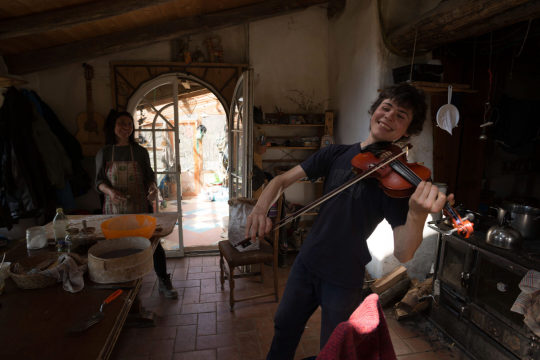
#carlo bevilacqua#photographer#culture#lgbtq+#socio-anthropological investigation#utopia dreaming the impossible#into the silence hermits of the third millennium#photography books#non-fiction books#queer communities#india#mexico#native north americans
0 notes
Text
Reviewed: "Hell Put to Shame: The 1921 Murder Farm Massacre and the Horror of America's Second Slavery" by Earl Swift
Sometimes it’s necessary to read and understand things that make a person uncomfortable. At the risk of sounding pretentious, those are teachable moments.
And Earl Swift delivers a profoundly important one with his telling of the so-called ‘Murder Farm Massacre’ in Jasper County, Georgia in 1921. It isn’t easy to know that slavery didn’t end when it was outlawed after the Civil War, that…
View On WordPress
#1920s history#book reviews#Civil rights#Earl Swift#Hell Put to Shame#non-fiction books#reviews#true crime
0 notes
Text
Amazing Border Collie
There’s a reason why the border collie is my favorite dog breed. I was expecting to take a rugged hike after a big snow in the high country without seeing a single hint of society.
However as is so often the case lately, some city people decided to invade my domain. As I was hiking past the free range cattle a truck came driving up the snowy road to the troll.
Rather than take the dog for a…
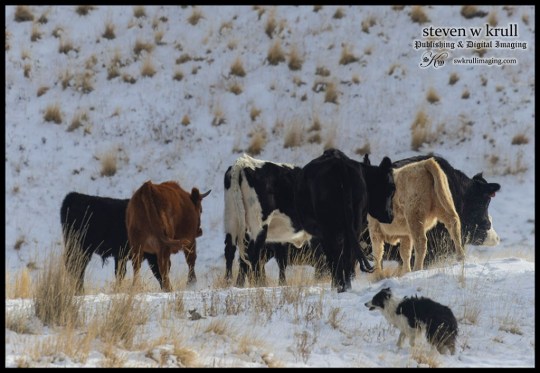
View On WordPress
#acrylic prints#books#books for sale#books worth reading#border collie#canvas prints#cattle#fiction books#metal art#metal prints#non-fiction books#photography#Pictures for sale#prints for sale#ranch#Spirit of the Wolf#working dogs#working ranch
1 note
·
View note
Text
10 Non-fiction Best-sellers to Live a Better Life
It’s easy to lose yourself in a good book, particularly when the book is a nonfiction capable of transforming you for good, and so is confirmed by millions of readers across the globe. Fiction might be fun, but non-fiction is more real and relevant. There is no one way to decide which is better. But both do one thing for sure – bring you to the written word and get you hooked for different…

View On WordPress
#best books blogs#best nonfiction books to read#book blogs#book review site#book reviewers india#Book Reviews#how to start a blog#indian book blogs#lifestyle blogs#non-ficiton bestsellers#non-fiction book recommendations#non-fiction books#Poetry#top book blogs
0 notes
Text
10 Tips to Integrate English Learning Into Your Routine

If you are an English learner who is looking for ways to hone your skills and integrate English learning into your daily routine, then you have come to the right place. With these 10 tips, you can incorporate these tactics into your beginner’s studies and make English learning a habit that comes as naturally as brushing your teeth.
Set a schedule – and stick to it: The best way to make sure you’re consistently learning English is by setting up a study plan that works for your lifestyle. Whether you prefer studying in the morning or after work, make sure you have time set aside specifically for English practice every day. With discipline, consistency and dedication, you will soon start to see improvements in your language skills.
Listen and repeat: Listening is an important part of learning any language. Try to listen to native English speakers as much as possible — this can be through audio recordings, movies or TV shows, podcasts, etc. As you listen, take notes on new words, phrases and pronunciation. Then, try to repeat what you heard aloud as this will help with pronunciation as well as confidence in speaking English.
Read everything: Reading is one of the most powerful tools when it comes to learning any language - even if you’re just a beginner. Start with shorter texts such as articles, blog posts or non-fiction books, and then gradually move on to longer texts such as novels or short stories. As you read, take notes of any words or phrases that you don’t understand and look them up later.
Play language learning games: Language learning can be fun and rewarding. There are a variety of online English games and apps that can help you learn in a more creative way. From word quizzes to hangman, these games can help to make English learning more interactive and engaging.
Make notes: Whether it’s new vocabulary or phrases you come across during movies or conversations with native English speakers, jot down any unfamiliar words and look up their meaning later. This can help you to expand your knowledge of the English language and remember words more easily.
Talk with native speakers: One of the best ways to improve your conversational skills is by talking with native English speakers. You can find these people online through forums or social media, or in real life at meet-ups or language exchange events. Talking with native speakers will help to increase your fluency and confidence when speaking English. You can also look into non fiction books for beginners for learning a language.
Use mnemonics: Mnemonics are memory devices that can be used to remember information more easily. For example, if you want to remember the spelling of a particular word, create a sentence using the letters of that word as its components. This will help you recall the word and its meaning more easily.
Watch movies: Watching movies is a great way to learn English, as it provides an immersive experience that you can’t get from any other medium. Try to watch movies in their original version (i.e., with subtitles) and observe how words are used in various contexts and situations.
Find a language buddy: Learning something new is always more enjoyable with a friend and language buddies are people who are willing to help you practice your English skills for free. You can find them online or in person, and they can be a great source of support and motivation when learning any language. Plus, it’s always nice to have someone to practice with.
Have fun: Learning a language does not have to be tedious or boring. Incorporate activities that you enjoy into your learning routine, such as listening to music in English, watching comedy shows or playing word games with friends. Having fun while learning will make the entire process more enjoyable and rewarding.
By following these steps, you’ll go from a beginner to experienced English speaker in no time. So make sure to keep these tips in mind and get started on your language-learning journey today with https://www.bbbg.org/.
#Non-Fiction Books for Beginners#Language Learning Tips#English Language Practice#Daily Routine Learning#Language Incorporation#Non-Fiction Books
0 notes
Text
youtube
Fiction And Non-Fiction Books | We Welcome Non-Fiction Books
Thank you for watching the video. Fiction And Non-Fiction Books | We Welcome Non-Fiction Books
#We Welcome Non-Fiction Books#Fiction And Non-Fiction Books |#Summit Press Publishers#Fiction And Non-Fiction#Non-Fiction Books#best non-fiction book publishers#Non-Fiction Books of SummitPressPublishers#non-fiction and fiction booksbooks both fiction and non-fiction#best videos for writers#videos for books publishing#Fiction#Non-Fiction#summitpresspublishers#fiction and non-fiction books summit press publishers#best fiction books publishers#best books publishers#Youtube
0 notes
Photo



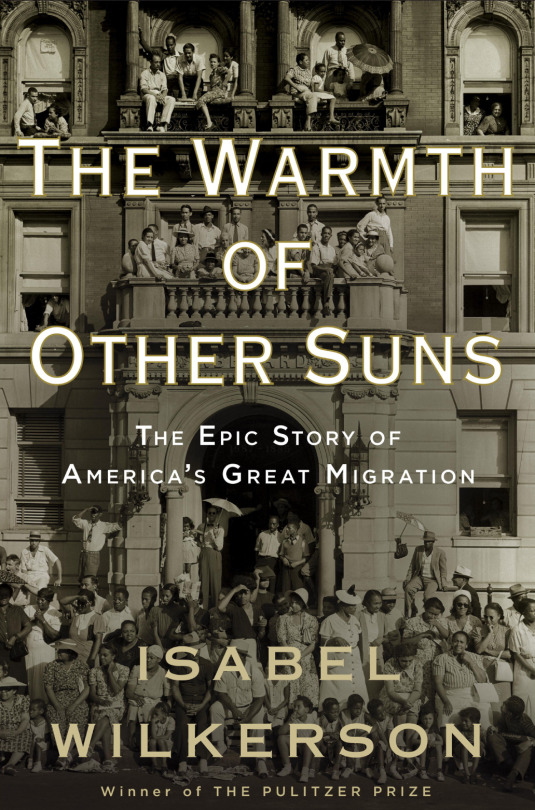
Black History Month: Nonfiction Recommendations
We Were Eight Years in Power by Ta-Nehisi Coates
“We were eight years in power” was the lament of Reconstruction-era black politicians as the American experiment in multiracial democracy ended with the return of white supremacist rule in the South. In this sweeping collection of new and selected essays, Ta-Nehisi Coates explores the tragic echoes of that history in our own time: the unprecedented election of a black president followed by a vicious backlash that fueled the election of the man Coates argues is America’s “first white president.”
But the story of these present-day eight years is not just about presidential politics. This book also examines the new voices, ideas, and movements for justice that emerged over this period - and the effects of the persistent, haunting shadow of our nation’s old and unreconciled history. Coates powerfully examines the events of the Obama era from his intimate and revealing perspective - the point of view of a young writer who begins the journey in an unemployment office in Harlem and ends it in the Oval Office, interviewing a president.
The Black History Book by DK Publishing
This volume is a captivating introduction to the key milestones in Black History, culture, and society across the globe - from the ancient world to the present, aimed at adults with an interest in the subject and students wanting to gain more of an overview. Explore the rich history of the peoples of Africa and the African diaspora, and the struggles and triumphs of Black communities around the world, all through engaging text and bold graphics.
The Three Mothers by Anna Malaika Tubbs
Much has been written about Berdis Baldwin's son James, about Alberta King's son Martin Luther, and Louise Little's son Malcolm. But virtually nothing has been said about the extraordinary women who raised them, who were all born at the beginning of the 20th century and forced to contend with the prejudices of Jim Crow as Black women. These three mothers taught resistance and a fundamental belief in the worth of Black people to their sons, even when these beliefs flew in the face of America's racist practices and led to ramifications for all three families' safety.
The Warmth of Other Suns by Isabel Wilkerson
In this beautifully written masterwork, Pulitzer Prize–winning author Isabel Wilkerson chronicles one of the great untold stories of American history: the decades-long migration of black citizens who fled the South for northern and western cities, in search of a better life. From 1915 to 1970, this exodus of almost six million people changed the face of America. Wilkerson compares this epic migration to the migrations of other peoples in history. She interviewed more than a thousand people, and gained access to new data and official records, to write this definitive and vividly dramatic account of how these American journeys unfolded, altering our cities, our country, and ourselves.
#black history month#black history#Black Authors#Nonfiction Reading#nonfiction#nonfiction reads#non-fiction books#library books#Reading Recs#reading recommendations#book recs#Book Recommendations#TBR pile#tbr#to read#Want To Read#book tumblr#Booklr#library blog#book blog
11 notes
·
View notes
Text


Two recent book cover commissions from some dear clients of mine!!
Rates are pretty low and I can give you some superb co-writing services or graphic design works!! <3
Read Lumica & follow the author! https://www.wattpad.com/user/evildeadfan102
Add me on Discord: ємєяαℓ∂/єм/ємѕ/ємму#9837
Add Lumica's author on Discord: Evildeadfan102 (Lyrafanforlife)#0645
#Book Covers#Book Design#Books#Reading#Readers of Tumblr#Bookstagram#Book Photography#Bookish#Booklover#Bibliophile#Reading List#Goodreads#Library#YA Books (Young Adult Books)#Fiction Books#Non-Fiction Books#Fantasy Books#Science Fiction Books#Mystery Books#Romance Books#Classic Literature#Bestsellers#New Releases#Reading Challenge#Diverse Books#Own Voices#Book Recommendations#Book Blog#Book Worm#Book Obsessed
0 notes
Text
Maus- a memoir you should read
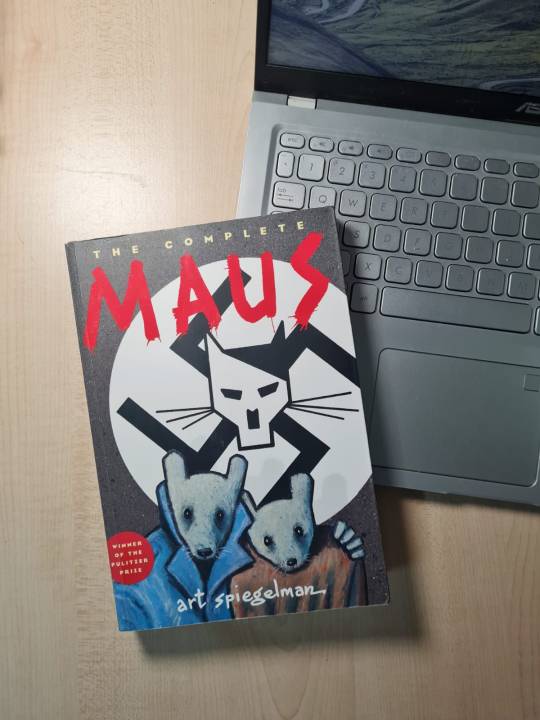
Hi! I read this graphic novel as a part of my english course and ended up reading its second half in the same sitting. Needless to say, I definitely recommend this to you.
Maus (Maus I and II), is a graphic novel in a comic strip format detailing Vladek Spiegelman, a Jewish survivor of the Holocaust’s accounts of Hitler’s Europe and living through it. It also details the lives of Art Spiegelman, his son, as he deals with the guilt of being a second-generation survivor and not actually living through the horrors his parents had to endure.
The Plot
The Pulitzer Prize-winning Maus tells the story of Vladek Spiegelman, a Jewish survivor of Hitler’s Europe, and his son, a cartoonist coming to terms with his father’s story. Maus approaches the unspeakable through the diminutive. Its form, the cartoon (the Nazis are cats, the Jews mice, the Poles as pigs, and Americans as dogs), shocks us out of any lingering sense of familiarity and succeeds in “drawing us closer to the bleak heart of the Holocaust” (The New York Times).
Maus is a haunting tale within a tale. Vladek’s harrowing story of survival is woven into the author’s account of his tortured relationship with his aging father. Against the backdrop of guilt brought by survival, they stage a normal life of small arguments and unhappy visits. This astonishing retelling of our century’s grisliest news is a story of survival, not only of Vladek but of the children who survive even the survivors. Maus studies the bloody pawprints of history and tracks its meaning for all of us.
Why you should read it
Let’s start with the format. The events seesaw with one side being Art, the son, talking to Vladek, his father, as Vladek accounts his life as in that time, and the other side Vladek’s life as he did his best to keep him and his wife alive. The formatting does not take away the truth and seriousness of the Holocaust, but it does balance it out with some much-needed lighter conversations where survival is not the only motive.
Its accounts of the Holocaust. This read depicts the Jews as mice and the Germans as cats (there are a thousand allegories you can take from that one), the Americans as dogs, and Poles as pigs. But despite this representation, it does not have any humour per say. It is a very much matter-of-fact recounting of starvation, survival, violence, and plain suffering.
The depictions of the Jews, especially Vladek and his family. Art’s parents, Vladek and Anja Spiegelman, were two Jews from Poland who survived through the Nazi ghetto of Sosnowiec and the extermination camp of Auschwitz-Birkenau. They were survivors and they bargained and used up favours in order to do this. Vladek saw the gas chambers used to exterminate Jews (like vermin, like mice, you can’t help but read into that one).
Vladek was portrayed as a very flawed man, whose flaws did not disappear with what he lived through and I loved his portrayal. He was not painted as a victim who gave into the sufferings of Jews, or a survivor who was a beloved hero or anything like that. He was a flawed person who ate snow for days to survive and more, and I loved that.
Art and Vladek’s relationship. I loved that this book delves into Art’s guilt of not living through all his parents survived, and his feelings of competing with his (dead) older brother. It makes Maus a very holistic representation of not only the Holocaust and Hitler’s Europe, but also the years long after that and the effects that proved to be lasting through generations.
Its important to know that, as talked about in the book, this book is based closely on the author, Art Spiegelman’s father’s memories of the death camps and Hitler’s Europe, hours on hours of research and took a total of whopping 13 years to complete.
All in all, I recommend you to pick this up, regardless of how old you are!
purchase this book here: https://amzn.to/45UuqZF [this is an associate link]
“Yes, life always takes the side of life, and somehow the victims are blamed. But it wasn’t the best people who survived, nor did the best ones die. It was random!”
View On WordPress
#book recommendations#book review#book reviews#memoirs#must read#non-fiction books#reading#maus#art spiegelman
1 note
·
View note
Link
A nonfiction reading challenge on storygraph! I’m going to have fun doing this myself even if it’s just me but it’s here if you wanna join in. You can add a book to a prompt by going to the book page and go to "add to reading challenges". If a book fits a prompt and you want to use it for the prompt, just add the book to it :).
#storygraph#books#reading#booklr#book community#nonfiction#non-fiction#nonfiction books#non-fiction books#reading challenge#reading challenge 2023#nonfiction reading challenge#non-fiction reading challenge
0 notes
Text
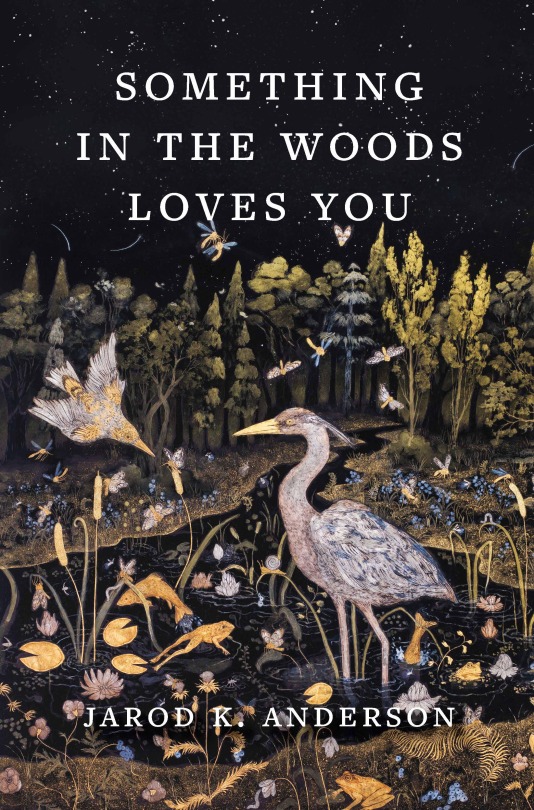
It's finally time! I've been excited to post about this FOREVER. Here is the cover for my new memoir about loving nature and struggling with depression. I'm very proud of this book and I adore this cover.
Artist: Tuesday Riddell
(Visit the link in my bio for more info.)
#nature#naturalist#nature poetry#mental health#hopepunk#poetsandwriters#depression#memoir#non fiction#new books#cover art#cover reveal
784 notes
·
View notes